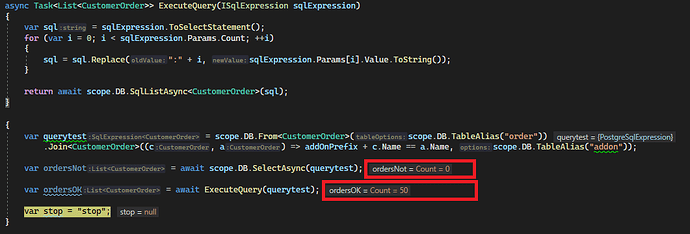Hi, I have a problem on executing the following SQL
var query = db.From<CustomerOrder>(db.TableAlias("order"))
.Join<CustomerOrder>((c, a) => addOnPrefix + c.Name == a.Name, db.TableAlias("addon"))
var orders = await db.SelectAsync(query);
It returns always an emtpy list.
But when I convert the generated SQL toString and use SqlListAsync it returns the requested data.
async Task<List<CustomerOrder>> ExecuteQuery(ISqlExpression sqlExpression)
{
var sql = sqlExpression.ToSelectStatement();
for (var i = 0; i < sqlExpression.Params.Count; ++i)
{
sql = sql.Replace(":" + i, sqlExpression.Params[i].Value.ToString());
}
return await db.SqlListAsync<CustomerOrder>(sql);
}
could it be that there is internally an exception, which is silently catched ?

